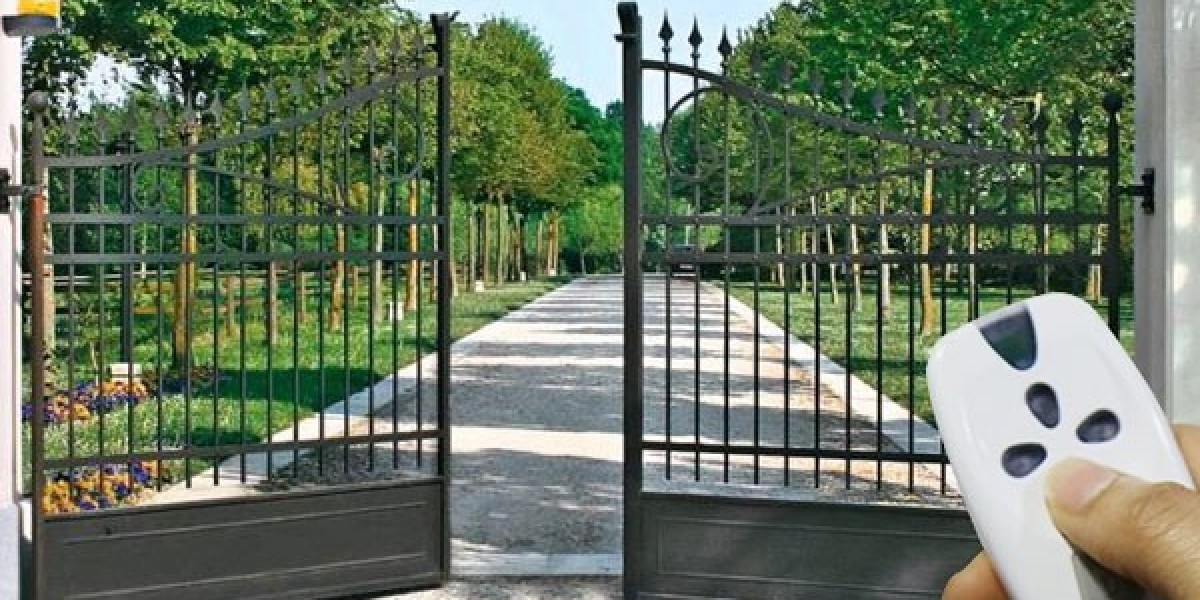Introduction
In the digital age, the concept of security has evolved alongside technological advancements. Automated gates, once a symbol of luxury and exclusivity, have become an integral part of contemporary security and convenience. Emirfab automated gate fabrication is the art of crafting these intelligent, aesthetically pleasing, and robust barriers that combine style and function. This article explores the world of automated gates fabrication, its significance, the various fabrication methods, and the crucial role it plays in our modern lives.
The Importance of Automated Gates
Automated gates are more than just access barriers; they are a testament to modern living. Here's why automated gates are crucial:
1. Security
- Automated gates provide a robust physical barrier, discouraging unauthorized access.
- They enhance the security of homes, businesses, and other properties.
2. Convenience
- Automated gates offer ease of operation, reducing the need for manual intervention.
- They can be controlled remotely, adding an extra layer of convenience.
3. Aesthetic Appeal
- Automated gates come in various designs, complementing the overall aesthetics of the property.
- They add an element of elegance and sophistication.
4. Property Value
- The installation of automated gates can significantly enhance the value of a property.
- They are often considered a sought-after feature in real estate.
Automated Gates Fabrication Methods
The fabrication of automated gates involves several methods and materials to create gates that are both functional and visually appealing. Here are the primary fabrication techniques:
1. Metal Fabrication
- Metal gates, including wrought iron, steel, and aluminum, are known for their durability.
- Craftsmen use cutting, welding, and forging techniques to create intricate designs.
2. Woodworking
- Wooden automated gates offer a natural and timeless look.
- Woods like teak, cedar, and oak are favored for their aesthetic and resilience.
- Woodworkers employ carving and finishing techniques for stunning designs.
3. Combination of Materials
- Some automated gates combine both metal and wood for a unique and balanced appearance.
- Metal frames can hold wooden panels, blending strength with aesthetics.
Custom Automated Gate Design
Custom automated gate design allows property owners to create gates that are unique and tailored to their specific needs:
1. Personalization
- Custom automated gates can incorporate personal or corporate logos, initials, and unique patterns.
- This personal touch makes the gate a reflection of the owner's identity.
2. Size and Shape
- Automated gate fabricators can design gates in various shapes, sizes, and configurations.
- This flexibility ensures that the gate fits perfectly within the designated space.
3. Ornamental Elements
- Intricate ornamental elements, such as scrolls, finials, and decorative motifs, can be added to the gate.
- These details enhance the gate's beauty and visual impact.
Automation Technologies
Automation is the core feature of automated gates, offering convenience and security. Here are the key automation technologies:
1. Swing Gates
- Swing gates open like doors and can be single or double gates.
- They are operated with electric motors and are commonly used in residential settings.
2. Sliding Gates
- Sliding gates open horizontally along a track.
- Automation allows for convenient remote control operation, ideal for commercial and industrial settings.
3. Access Control Systems
- Automated gates are often equipped with access control systems, such as keypads, card readers, and smartphone apps.
- These features restrict access to authorized personnel.
Maintenance and Durability
Proper maintenance is essential to ensure the longevity of automated gates:
1. Cleaning and Painting
- Regular cleaning and painting protect metal automated gates from rust and corrosion.
- Wooden gates benefit from periodic staining or painting to prevent decay.
2. Lubrication
- Automated gates require periodic lubrication to ensure smooth and quiet operation.
- Lubricating hinges, rollers, and tracks prevents wear and tear.
3. Inspection
- Routine inspections help identify and address any issues before they become major problems.
- Components such as motors, sensors, and safety features should be checked regularly.
Automated Gates and Security
Automated gates are integral to security, and their fabrication must meet specific standards:
1. Sturdy Construction
- Automated gates should be constructed with robust materials and techniques that resist tampering and unauthorized entry.
- Welded joints and robust frames enhance security.
2. Safety Features
- Safety is paramount in automated gates.
- Features like obstacle detection sensors and photoelectric eyes prevent accidents and damage.
3. Remote Monitoring
- Advanced automated gates can be integrated with remote monitoring systems.
- Property owners can receive alerts and control access remotely.
The Future of Automated Gates Fabrication
The future of automated gates fabrication is filled with exciting possibilities:
1. Smart Automation
- The integration of smart technology will make automated gates even more convenient and secure.
- Advanced AI systems may provide predictive security measures.
2. Sustainable Materials
- An increasing focus on sustainability may lead to the use of eco-friendly materials in automated gate fabrication.
- Recyclable and renewable materials may gain popularity.
Conclusion
Automated gates fabrication represents a perfect blend of security, convenience, and aesthetics. Whether guarding the entrance to a sprawling estate, a commercial facility, or a cozy home, a well-designed and expertly fabricated automated gate serves as an enduring symbol of modern living. With a range of fabrication methods, materials, and design possibilities, automated gates continue to be an essential element of our properties, offering security, convenience, and an aesthetic appeal that leaves a lasting impression. As technology continues to advance, we can expect even more sophisticated and secure automated gates to further enhance our lives in the future.








